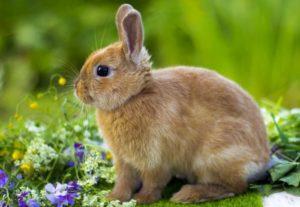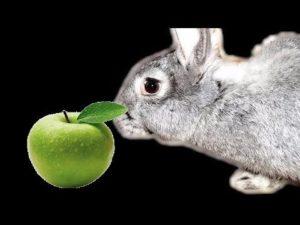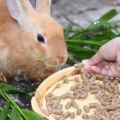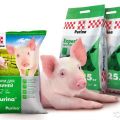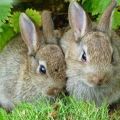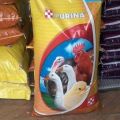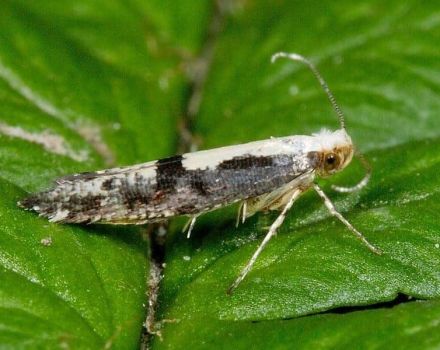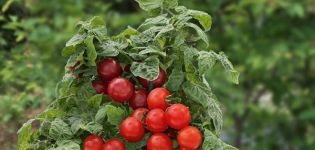Composition and benefits of Purina rabbit food, instructions for use
Purina Rabbit Feed is ideal for households and small farms. This product is made from selected high quality raw materials. It contains vitamins and minerals that are required by animals at different stages of their development. Also, the food contains grains and fiber, which contribute to the full development of animals.
Feed composition and release form
The Purina trademark offers farmers quality feed, which is developed by experienced veterinarians. Rabbit mixes are tailored to the individual needs of the animals. As a result, they do not cause digestive disorders or other health problems. Purina feed does not contain antibacterial components, hormones or other dangerous impurities.
Despite the unpretentiousness of rabbits in nutrition, the company "Purina" offers them a special feed. The use of such a composition provides animals with all the substances they need. The health of the animals depends on the presence of the following components in the mixture:
- Fiber is an important ingredient in rabbits. It should be borne in mind that fiber in the body of animals is digested with difficulty. Moreover, the deficiency of this substance causes disturbances in the functioning of the digestive organs. Therefore, it is so important to choose the right balance of this element.
- Protein - Rabbits have a need for this substance. Protein feed promotes cell regeneration. With its help, it is possible to normalize the microflora and the structure of the intestinal mucous membranes.
- Carbohydrates and vegetable fats - these components provide the animals with a lot of energy. Such compound feed helps animals to quickly gain body weight.
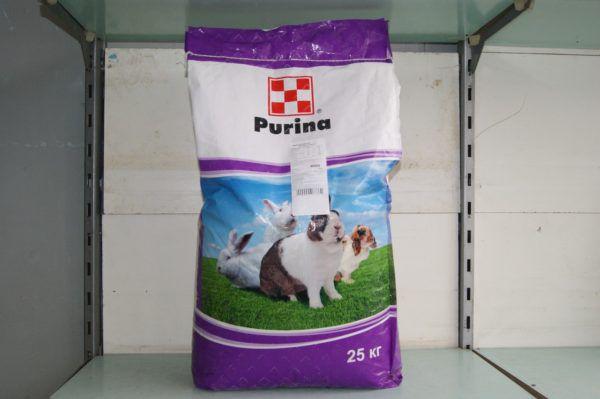
The Purina compound feed for rabbits contains the following components:
- cereals;
- beet pulp;
- sunflower meal;
- herbal flour;
- limestone;
- amino acids;
- vitamins and minerals;
- probiotics;
- coccidiostatics.
Compound feed is used not only for feeding meat breeds of rabbits. It can also be used to feed rabbits during lactation and grown-up rabbits. At the time of weaning of young from the mother, the average daily requirement for a substance for 1 individual is approximately 90 grams.
Adults and young animals 90 days old are allowed to feed 2-3 times a day. Thanks to this, it will be possible to achieve an excellent weight gain, which exceeds 50 grams.
It should be borne in mind that there is a coccidiostatic in the Purina rabbit feed. It is a medicinal substance that helps to avoid diseases associated with infection with intracellular parasites.Therefore, a week before the slaughter of the animal, this mixture must be removed from the diet.
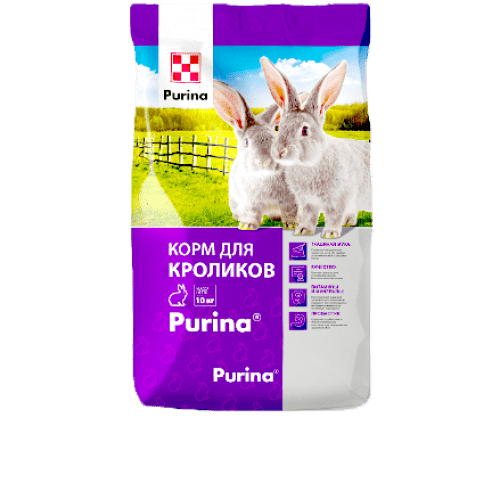
Advantages and disadvantages of Purina compound feed
Purina offers farmers a balanced universal feed that is suitable for different rearing periods. This product has many advantages:
- full supply of rabbits with nutrients - the feed fully covers the animals' need for vitamins, minerals and other useful elements;
- excellent rearing results - this type of food ensures the rapid growth of animals and maintains their normal health;
- the content of probiotics and a balanced amount of fiber - this helps to maintain normal functioning of the digestive organs;
- the presence of natural grass flour in the composition - thanks to this, the rabbits do not have to be fed with hay;
- the presence of calcium and phosphorus in the composition - these substances are important for strong bone structures and excellent lactation in rabbits;
- lack of hormonal components and growth stimulants.
When using food for females, it is possible to achieve the following results:
- high milk production and excellent preservation of rabbits;
- good developmental speed of pups;
- high number of litters and weaned pups per queen during the year.
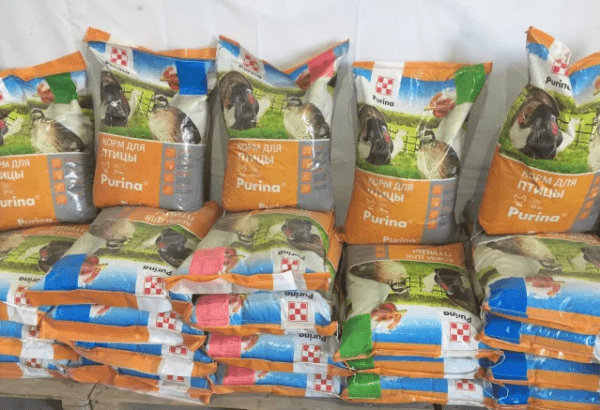
The use of feed for raising rabbits has the following advantages:
- fast development;
- low feed consumption;
- getting mature meat and the absence of excess fat;
- prevention of the development of coccidiosis.
In addition, feeding animals with this mixture helps to reduce the likelihood of digestive pathologies. They are often caused by the development of toxic fungi that infect other types of feed.
The disadvantage of this feeding method is the need for experimental selection of the optimal type of food. In this case, it is necessary to focus on the taste preferences of animals, their physiological state and features of the content. If necessary, ready-made feed can be supplemented with vitamins, micro- and macroelements, which improves the development of animals.

Instructions for use
The rules for feeding animals depend on the stage of their development:
- Lactating females and rabbits before weaning should be fed ad libitum.
- The uterus should receive 200-350 grams of feed per day.
- Rabbits after weaning - at the age of 36-70 days, rabbits are given 75-150 grams of feed per day.
- Fattening rabbits - from day 71 to slaughter, rabbits are fed ad libitum. On average, they are given 150-200 grams of the mixture per day.
When using the mixture "Purina" for fattening rabbits by the 90th day of rearing, live weight reaches 2.6 kilograms with a feed conversion of 4. In the case of using the composition for lactating and fledging females, it is possible to obtain up to 50 rabbits per head per year. Such a result is possible with strict adherence to the program.
Storage period and rules
According to the manufacturer's recommendations, Purina feed can be stored for six months from the date of manufacture. It should be kept in a dry and dark place.
Purina food has a varied and balanced composition, which helps to maintain normal animal health and ensures their full development. In order for the animals to grow and develop normally, you need to strictly follow the manufacturer's recommendations for their feeding and maintenance.
